All journalists going in search of a story have to wade through muddy waters to reach the truth. This became an apt metaphor when a group of Indian and Pakistani journalists came together at a workshop organised by LEAD Pakistan to demystify the touchy subject of the Indus Waters Treaty.
With the rhetoric “hotting up” on the subject in Pakistan (to the tune of beating war drums by the hawks) there was a dire need to grapple with the what, when and who of the subject. Interestingly, the timing of the workshop was all the more poignant as it coincided with the Indian Water Commissioner holding a key dialogue with his Pakistani counterpart, Jama’at Ali Shah, in Lahore. The reports emanating from there brought home the need for informed reporting on this sensitive issue.
Water is a diminishing resource the world over. It needs to be conserved and used judiciously. However, when it is a shared resource, and that too between traditional adversaries, rather than dousing tensions, it becomes a volatile agent.
But it does not always have to be so.
There are examples in the world. In the Nile Delta, for instance, 10 countries share the basin of the Nile, arguably the world’s longest river. These are Burundi, Egypt, Eritrea, Ethiopia, Kenya, Rwanda, Sudan, Tanzania, Uganda, and the Democratic Republic of the Congo. Another positive example is in the Mekong Delta in South East Asia, where an amicable distribution has been worked out between Cambodia, Laos, Thailand and Vietnam.
So what is it about the waters of the Indus that evoke passions on the west of the Wagah and make some people talk of the tensions escalating into a nuclear conflict?
Here the stakeholders are China, India, Pakistan, and Afghanistan, but the element of conflict is introduced into the equation because of India, especially as the Indus flows into Pakistan through the contentious land of Kashmir.
To make an understatement, historically, none of these countries have been each other’s best friends. They have come to blows more than once (China and India, India and Pakistan, and there is a continuing mistrust between Pakistan and Afghanistan). However, it goes to the credit of the meticulously negotiated Indus Waters Treaty that it held its own despite two full-blown wars (1965 and 1971) and a limited but extremely perilous skirmish in Kargil. Is it any wonder then that the treaty is taught at all strategic institutes teaching conflict and cooperation?
So what has suddenly gone wrong that we are being given the impression that water wars are in the offing? Why is it that the water issue is such a big deal here in Pakistan, but in India people are generally unaware of even the existence of a crisis? Well for one thing, it is because India is the upper riparian. In other words, “The regional hegemon (India) is the upper riparian and has all the cards in its hands. This asymmetry means that it is India that is driving the train,” writes John Briscoe, the Gordon McKay professor of environmental health at Harvard University. He was the senior water advisor for the World Bank, who dealt with the appointment of the neutral expert on the Baglihar case.
We in our own country are familiar with the huge gulf in the understanding of the water issues. The lower riparians in Sindh have been crying themselves hoarse and feel that their cries are falling on deaf ears of the upper riparian, hence the heartburning and resentment.
Herein lie the problems in reporting these issues. There is a lack of data, a lack of access to existing data and very little interaction between the journalists and communicators with the scientists, water experts and environment experts. As a result, the information that does exist is not in a form that people can understand.
 The success of this particular workshop was in bringing such experts and journalists together, and the information shared was an eye opener. An eye opener because the rhetoric from the hawks maintains that the treaty ‘gifted’ three of Pakistan’s rivers to India.
The success of this particular workshop was in bringing such experts and journalists together, and the information shared was an eye opener. An eye opener because the rhetoric from the hawks maintains that the treaty ‘gifted’ three of Pakistan’s rivers to India.
History tells us the need arose when on April 1, 1948, India stopped the water supply to Pakistan from all canals flowing from India to Pakistan. In 1960, after 10 years of exhaustive and painstaking negotiations, with the World Bank standing as guarantor, the Indus Waters Treaty was signed.
The treaty gives India exclusive use of all of the waters of the eastern rivers (Sutlej, Beas and Ravi) and their tributaries before the point where the rivers enter Pakistan. Similarly, Pakistan has exclusive use of the western rivers. This three-versus-two equation is shouted from the rooftops as unfair, but anyone pointing out the fact that Pakistan received 135 MAF (Million Acre Feet) while India’s share was 33 MAF is deemed as ‘pro-Indian’ (see graph “Water Share After IWT”).
Pakistan also received a one-time financial compensation for the loss of water from the eastern rivers. The treaty guaranteed 10 years of uninterrupted water supply. During this period, Pakistan was to build huge dams, financed partly by long-term World Bank loans and the compensation money from India. It is another matter that India reneged on the compensation and the World Bank stepped in. This is how the three multipurpose dams Warsak, Mangla and Tarbela were built.
Aside from the financial cost of these mega engineering marvels, there was a human and political cost that was not calculated at the time of their building. Yes, the people of Mirpur received financial compensation as well as UK visas in exchange for the drowning of their homes and hearths. But what of the lower riparians within the country, the people of Sindh who saw the proliferation of the canal network and the green revolution in the Punjab?
Danish Mustafa, professor at the department of geography at Kings College, London, holds the view that if Ayub Khan’s totalitarian rule and his One Unit, which blurred Sindh’s identity, had not been there, the agreement to the treaty may not have been easy. Marginalisation of those voices became a festering wound, marring inter-provincial relations.
The suspicions about the release of waters downstream Kotri and the havoc that sea intrusion has wrought due to the lack of fresh water flows in the Indus delta, are issues political capital is made out of – even though the figures speak a different story. Thirty-five MAF downstream Kotri is an oft-quoted figure, which would cater for “water for cities, water for agriculture, water for industries, as well as water for nature,” in the words of Dr Parvaiz Amir, a noted agricultural economist and environmental expert.
Figures for past years show that it has been released but, according to hydrology expert Daniyal Hashmi, “The need is for storage of this water and regulation throughout the year, not just a few days of the year, plus its use in the lean flow years.”
Experts are unanimous on the need for better water management, something that Pakistan severely lacks. Says Dr Amir, “We are moving from a water-scarce to a water-stressed country.”
Dependence on snowmelt in the Himalayan glaciers, which sends water coursing through our plains, has become questionable due to the impacts of climate change, an unknown factor at the time of drafting the treaty. This exposes us to many additional threats too: disasters due to GLOF (Glacial Lake Outburst Floods) and subsequent drought due to glacial depletion. To many this seems a distant threat, but in the here and now, one reason why the Indians seem so unconcerned about our plight is that we have not displayed much sagacity in planning.
Our ‘wonderful’ canal network is mostly unlined, so whatever water is released, a large percentage of it is lost to evaporation. We have depleted the aquifer without giving it a chance to recharge through blind overuse of tube wells run on cheap electricity. We have truly been penny-wise, pound-foolish! We have not built adequate storage and reservoirs. And of course, there are the population pressures we are exerting on the diminishing resources. Is it any wonder that the Indians ‘just can’t get’ why Pakistan is making a noise about water theft, when it is not even keeping safe the water resources it has on its own side of the border?
To illustrate the point, Daniyal Hashmi gives the example of Israel, which is a role model for the world as far as water management is concerned. Israel has 1.4 MAF of water and it is producing $12 billion worth of crops. We have 100 times more water, but 50% of the population is involved in poor agriculture practices (growing sugarcane and cotton, water-intensive crops that would be cheaper if simply imported) yielding production of a meagre $40 billion. “Pakistan has hydroelectric potential of 40,000MW but is realising only 6,500MW. Pakistanis spend $28 billion annually on imports and the largest category receiving that precious foreign exchange is used in purchasing petroleum. This money could be diverted to the development projects, and cheap electricity and water reservoirs could be made,” says Hashmi.
So while all this information is very well, where do the journalists figure in all of this? Well, for one thing, they must ask questions. No one expects them to make a scientific argument. But they need to get the scientists and politicians to come clean on the issues. Issues such as why the telemetry system installed to ensure transparency in river flows has not been used – using it could have lowered tensions between provinces and allowed for the building of much needed water projects that have become victim of polemic politics. The rhetoric on transboundary water issues can also be cut down through use of this system to monitor flows. These issues can be a cause of conflict of interest between the most benign of neighbours, and the relationship between Pakistan and India has been anything but. We should be grateful to those who crafted this treaty as they built in mechanisms of conflict resolution, hence Pakistan’s silence despite its case being lost in front of the arbitrator for objections on India’s Baghliar dam.
When the politicians cry foul and act as rabble rousers, it is up to the journalists to act as the bridge between the scientists and experts who hold the truth, and the people who are likely to be impacted the most in case of any misadventure. They must bridge the gap between information and dissemination. For this, more capacity as well as confidence building measures are needed so journalists investigating a story are not seen as enemy agents trying to divulge state secrets. In this day and age, the state has no business keeping too many secrets from its people, the real stakeholders. Access to information, transparency and accountability are the tools journalists can use to make the waters less muddied.

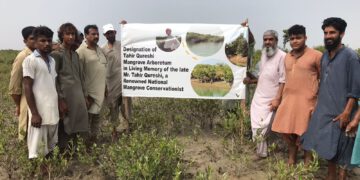
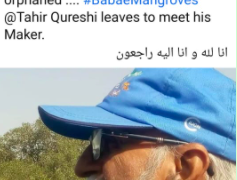
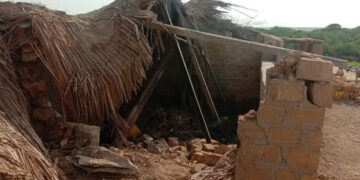
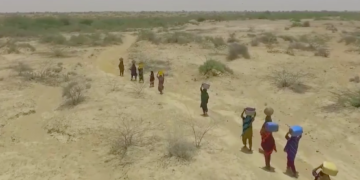

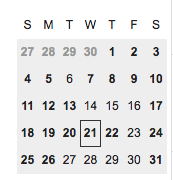
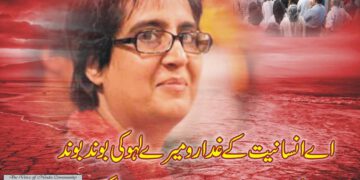





respected madam
aslamualkam your email recieved daily basis i am thankful to you
from
dr asif sethi
daily bright star gujrnwala 03364611983
nice
Dear Afia
I have been reading your emails ans sometime queries. All this is very interesting and inforamtive. I would like to see your work/papers on water issue. I do hope that you would contineou your efforts for enriching the inforamtion of all stakeholders for enriching their inforamtion and knowledge.
God bless on all of us
Many regards
Ejaz Sikandar
Cohort-6 and Ex-Employee of IUCN
thank you very much for your encouraging words.. my blog has not been updated but I am sure you must be receiving the mails with links to my articles via all-cohorts. Do give feedback. Will try and write more on water